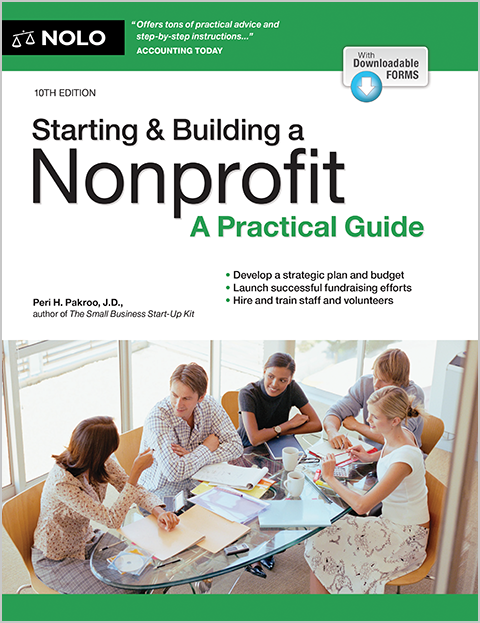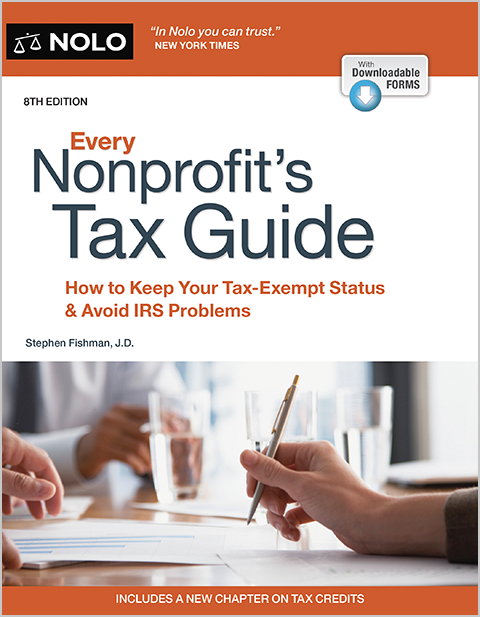Understand the different types of religious organizations and the steps to forming your own nonprofit.
Nonprofit religious organizations are places of worship, such as churches and mosques, as well as faith-based nonprofits that have missions based on religious values. In many ways, the process for forming a religious nonprofit is the same as creating other types of charities.
Those tasks include building a board of directors, filing paperwork with the state, and applying for tax-exemption. In some states, religious nonprofits use special formation forms and follow slightly different rules for governance than other charities (such as giving the congregation the right to elect the directors).
The Difference Between a Church and a Religious Organization
If your organization is a place of worship, your nonprofit might meet the IRS's definition of a "church" and enjoy automatic tax-exemption. According to the IRS, churches include a variety of places of worship such as temples, synagogues, and mosques, as well as associations of churches. Some of the characteristics the IRS looks for when determining whether the organization is a church include:
- ordained ministers
- the assembly is part of a recognized creed or form of worship
- regular religious services and assemblies are held
- a distinct religious history
- the organization follows a code of doctrine and discipline
- members are not associated with other denominations
- the organization maintains places of worship, and
- the organization has established schools for youth and members.
If your organization has many but not all of the above characteristics, the IRS still might deem your nonprofit a church. For example, if your organization follows a recognized creed, has ordained ministers, and holds weekly services, but you do not have a school, you will likely pass the test.
In contrast, if your organization is a homeless shelter that employs ordained ministers, but does not have a place of worship or religious services, it is likely not a church.
If you have questions about your organization, consider submitting an application for 501(c)(3) status (as discussed above), consulting with an attorney, or both. For more information, check IRS Publication 1828, Tax Guide for Churches & Religious Organizations.
State Requirements for Religious Nonprofits
Check the laws of your state to determine the requirements and paperwork for religious nonprofits, which might be different from other charities. Typically, the rules regarding religious nonprofits apply to all organizations with a religious purpose. However, some states have regulations that pertain only to "churches" (as defined by the IRS), or organizations structured exclusively for religious purposes (as opposed to nonprofits with missions that include non-religious purposes like education).
After you verify that your state classifies your organization as a religious nonprofit, review the operational and formation requirements. For example, your state might require religious nonprofits to have a minimum of one director, and other charities to have a minimum of three. In addition, some states have two types of formation forms (such as articles of incorporation): one for religious nonprofits and one for non-religious nonprofits.
If your nonprofit is a place of worship, your state might require your organization to be a "membership" nonprofit. If so, you'll need to determine who will serve as your members. (Membership nonprofits have voting members who have the right to participate in internal matters, such as who will serve on the board of directors.) In some states, the law provides that the congregation will serve as the members unless the nonprofit's bylaws state otherwise. For more information about membership nonprofits, see Nolo's article, Difference Between Membership and Nonmembership Nonprofits.
Steps for Forming a Religious Nonprofit
The steps for forming a religious nonprofit are similar to forming other charities, which include:
- form a board of directors
- apply for an Employer Identification Number (EIN)
- file formation documents, such as articles of incorporation (be sure to verify that you use the proper form for a religious nonprofit)
- apply for federal tax exemption (as discussed below)
- apply for state tax exemption
- draft bylaws (the internal rules for running your organization)
- register with your state's fundraising agency, and
- obtain licenses and permits.
For more information, check out our 50-state guide on forming a nonprofit.
Tax Treatment of Religious Nonprofit Organizations
Like other charities, religious nonprofits can pursue federal 501(c)(3) tax status, which allows the nonprofit to avoid corporate tax and accept tax-deductible donations. The IRS imposes restrictions on exempt nonprofits, including limitations on lobbying and the use of profits. You can read more about the regulations that apply to exempt organizations here.
When Your Nonprofit Is Automatically Tax-Exempt
If your organization plans on pursuing tax-exempt status to avoid corporate tax and to accept tax-deductible donations, it's important to determine whether the IRS classifies your organization as a "church" (which includes a variety of congregations) or simply a religious organization.
The process for tax-exemption depends on whether the IRS considers your organization to be a "church." If your organization is a church, your nonprofit is automatically tax-exempt and you don't have to submit an application or annual tax filings to the IRS.
If your organization isn't a church, but you are a charity with a religious purpose, don't worry—although exemption is not automatic, your tax-exempt status is secure once you've established it. Once your nonprofit is tax-exempt, your reporting requirements will be the same as other nonprofits.
Even when they think they have automatic recognition, many church organizers apply for 501(c)(3) status to be quite sure and to encourage donations. When an organization incorrectly assumes it is a church and the IRS later finds otherwise, the organization will be responsible for corporate income tax, and prior contributions will not be tax-deductible (which might create tax problems for your donors).
Check for a Group Ruling
If your nonprofit is an affiliate of a larger organization, check whether the parent organization received a group ruling. Your organization might be included under that ruling, which means that the IRS already recognizes your organization as exempt.
If your organization wasn't included in the group ruling, the parent organization might have the option to amend their filing to include you, which is often simpler for you than having to submit an application for a new organization. You should consult with a tax attorney or an accountant for help with the amendment process.



